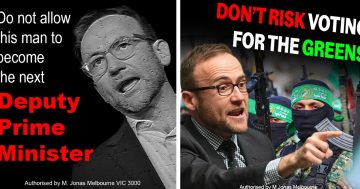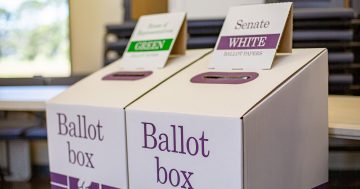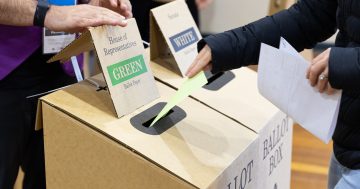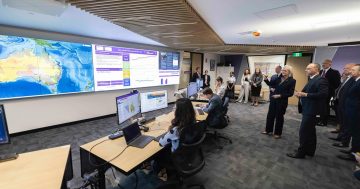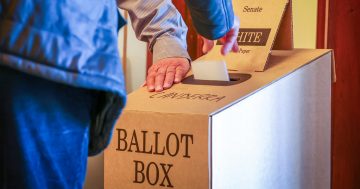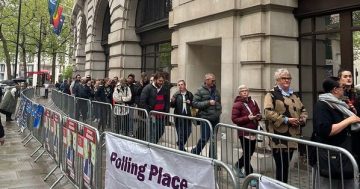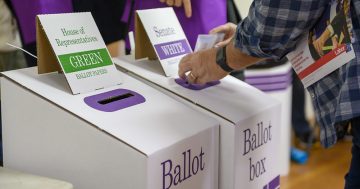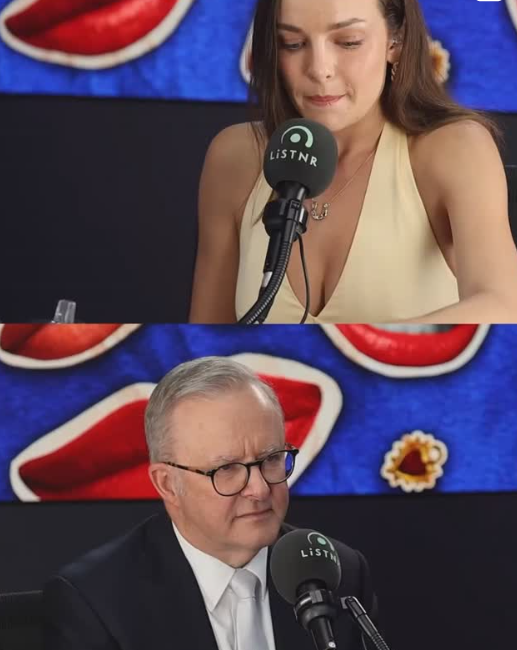
Abbie Chatfield hosting Prime Minister Anthony Albanese on her podcast in February 2025. Photo: Screenshot.
Influencers are having such an impact on the federal election that the Australian Electoral Commission (AEC) has issued guidelines for them and for how politicians should interact with them.
It advises politicians to authorise all co-authored posts with influencers, podcasters and other content creators.
The advice is all about authorisation statements and what can and can’t be considered political advertising on social media.
The AEC deemed it necessary to update its authorisation guidelines following its review of podcaster Abbie Chatfield’s content, which was later shared online by Prime Minister Anthony Albanese and Greens leader Adam Bandt.
The review was sparked after Ms Chatfield’s podcast ‘It’s a Lot’ was raised in Senate Estimates.
The AEC declared Ms Chatfield’s podcasts to be fine without political authorisation statements because she is not a political candidate or party.
However, with uncertainty remaining over whether authorisations were needed from politicians and parties sharing snippets of her interviews on their own social media accounts, the AEC has issued further advice.
In a nutshell, the AEC says political parties and candidates should place authorisation statements when they share influencer content.
“Authorisation requirements can be complex, particularly for newer functions of social media platforms,” the AEC’s guidelines state.
“The AEC’s advice is always ‘if in doubt, authorise’ – particularly for political and disclosure entities who do or might meet one of the key criteria under the legislation for requiring an authorisation statement.
“Generally, the level of compliance with the authorisation requirements thus far has been good.
“In almost all cases, breaches have been relatively quickly rectified when requested by the AEC.
“Timeliness of rectifying breaches will be a focus as we get closer to the polling period.”
The AEC says the increased involvement by influencers, podcasters and other content creators in political commentary during the 2025 federal election made it prudent to issue additional information and guidance.
Electoral communication distributed by individuals or organisations that are not political entities (eg candidates or political parties or otherwise required to register with the AEC as disclosure entity) does not require an authorisation unless:
- the material is paid advertising, or
- payment is involved to produce/distribute the material, or
- gifts-in-kind are provided by a political entity that are conditional on certain material being distributed, or
- the material is communicated by or on behalf of a political entity.
Those factors are consistent with electoral authorisation requirements that have been in place for many elections.
The additional guidance material is specific to the cross-posting functionality available on some social media platforms.
“Video content originating from an individual or organisation that is not required to authorise their unpaid communication could, if cross-posted by a political entity (eg party, candidate or associated entity), introduce an authorisation requirement on that content, but only on behalf of the political entity,” the guidance states.
“The AEC is communicating with political entities directly to ensure this technical aspect of electoral authorisation requirements is understood.”
Truth in electoral communication, however, is another issue over which the AEC has little control.
Apart from electoral matters that relate to how someone casts a vote, the AEC cannot, and has never been able to, regulate truth in electoral communication.
It is running a campaign, however, called ‘stop and consider’, and it provides a range of resources to voters, all designed to assist people in navigating the election communication environment.
Early in the campaign period, the AEC also distributed a request for people to campaign lawfully and respectfully during this election campaign.
“The voter’s role, as it’s always been, is to stop and consider what they’re seeing, hearing and reading, and to make their own decisions around that,” it says.
The AEC’s review of Ms Chatfield’s podcasts in question found that while it could be viewed as being made for the purpose of influencing how someone casts their vote, there was no evidence of a monetary benefit for the podcaster as a result of either Mr Albanese or Mr Bandt being invited onto the show.
“It appears that the invitations to Mr Albanese or Mr Bandt to participate were voluntary,” the AEC stated.
“In addition, questions put to both interviewees were sourced from the podcast’s audience.
“There is no evidence that either Mr Albanese or Mr Bandt had creative control in relation to the questions that were asked.”
Original Article published by Chris Johnson on Region Canberra.




